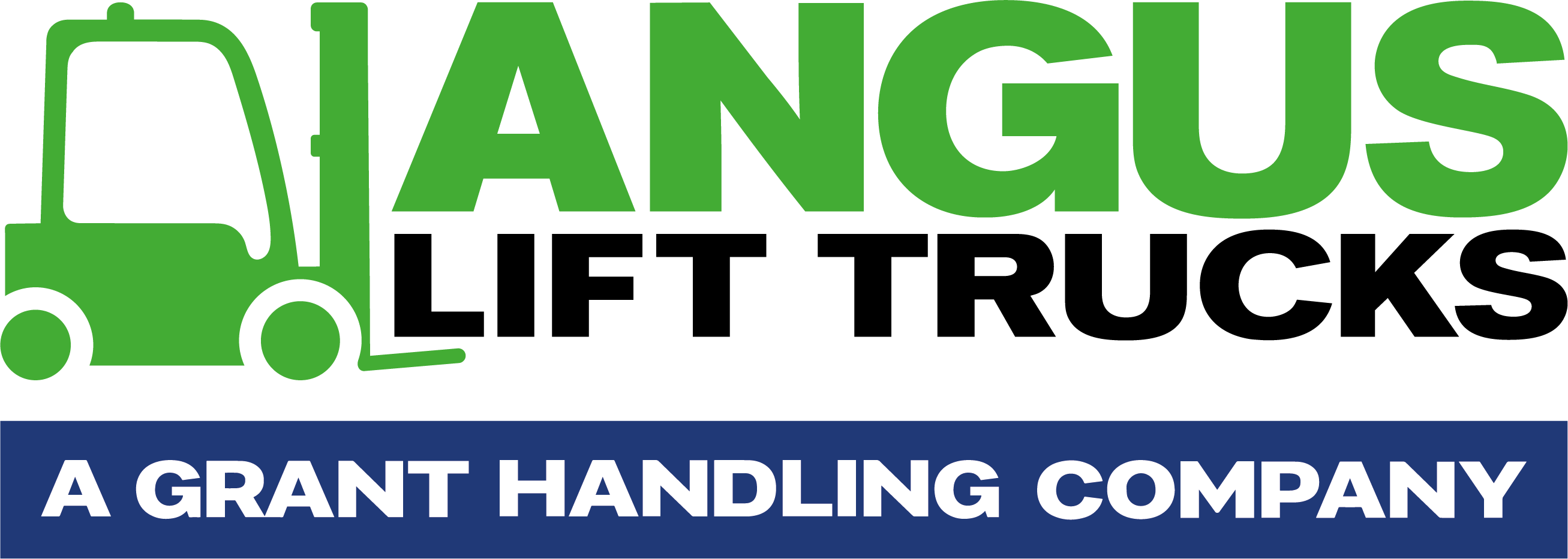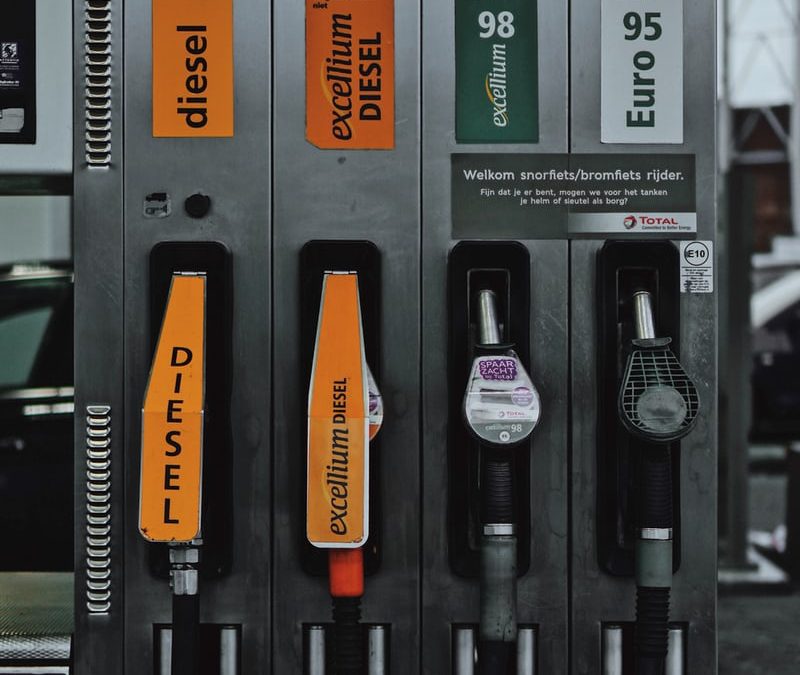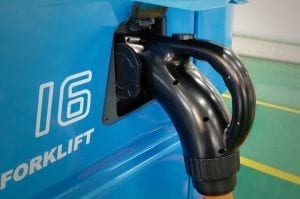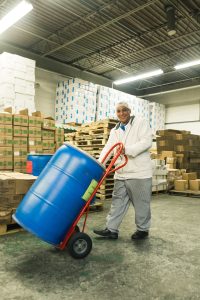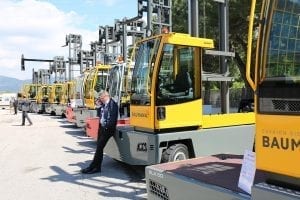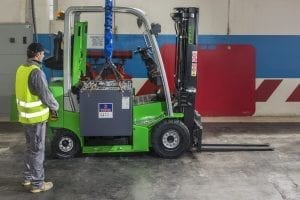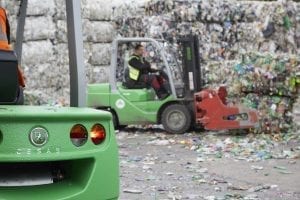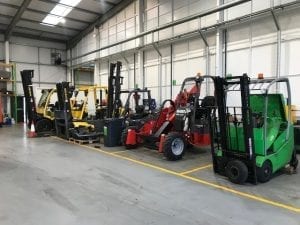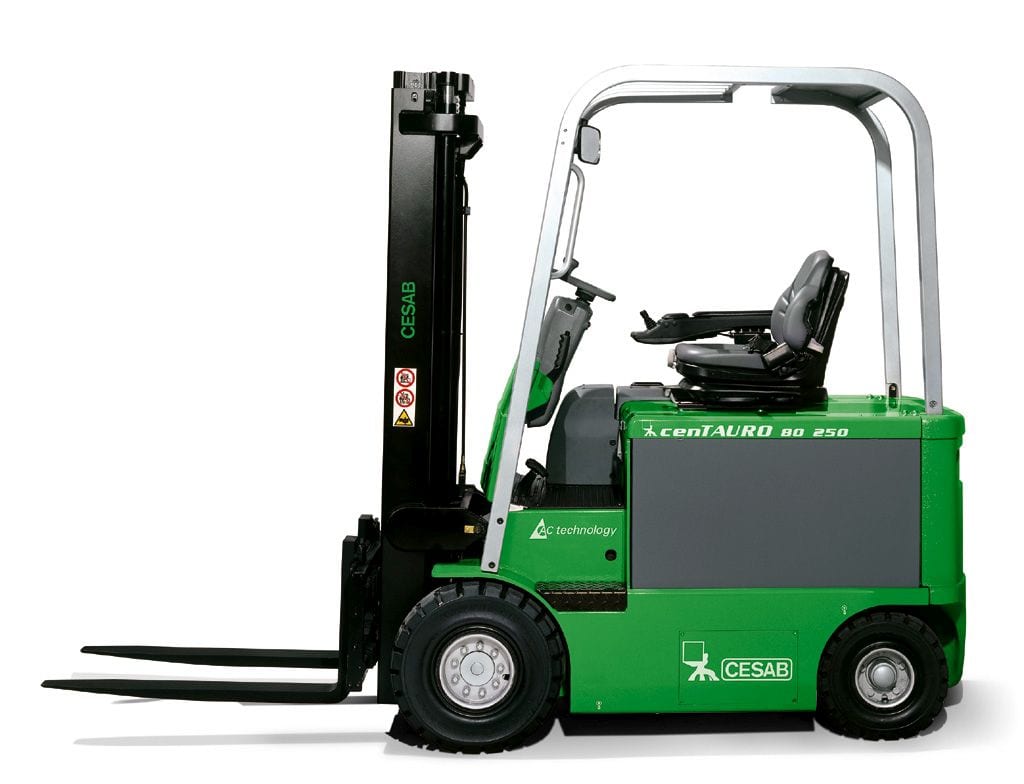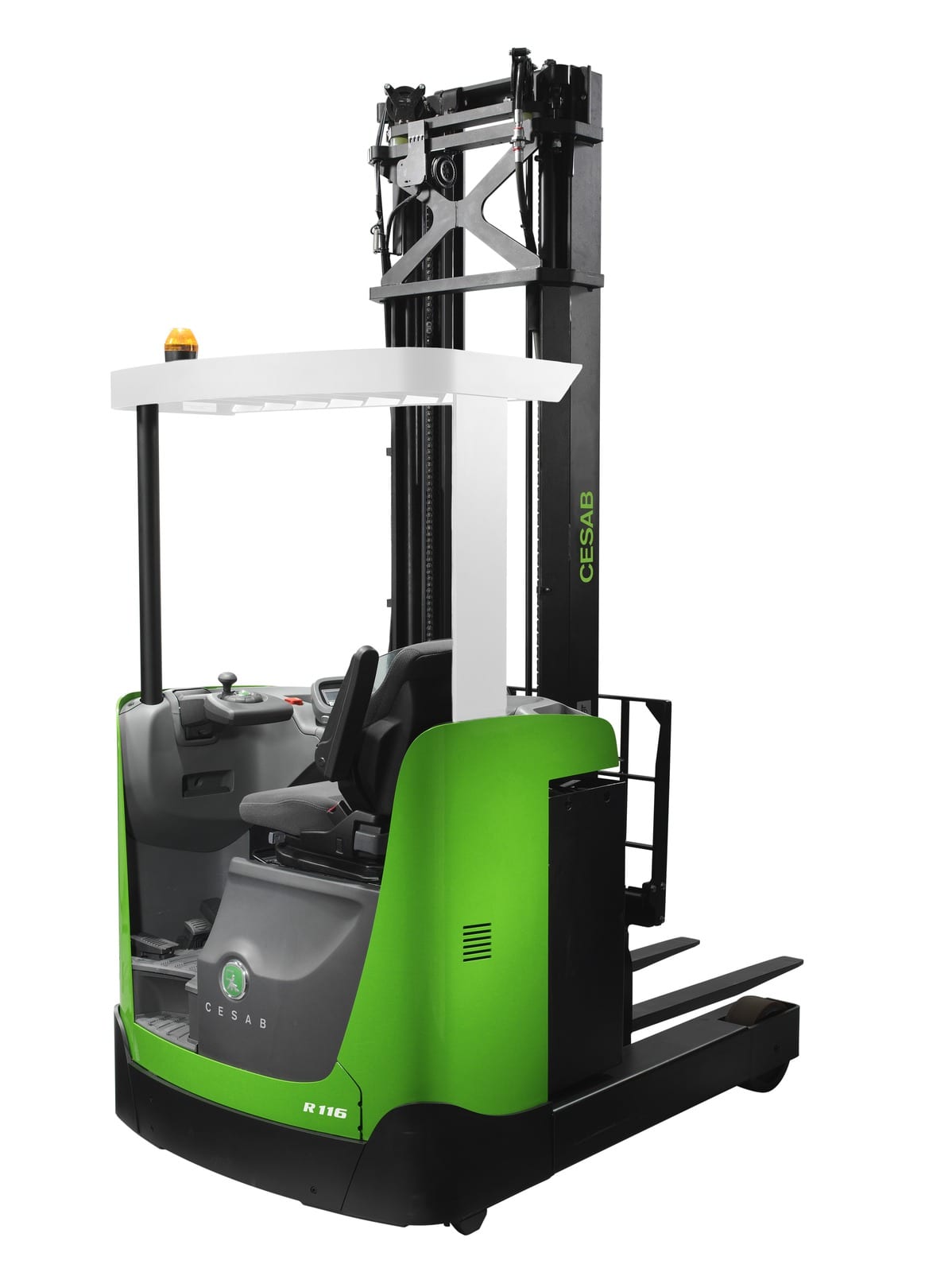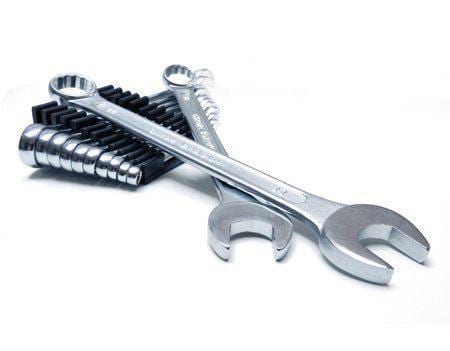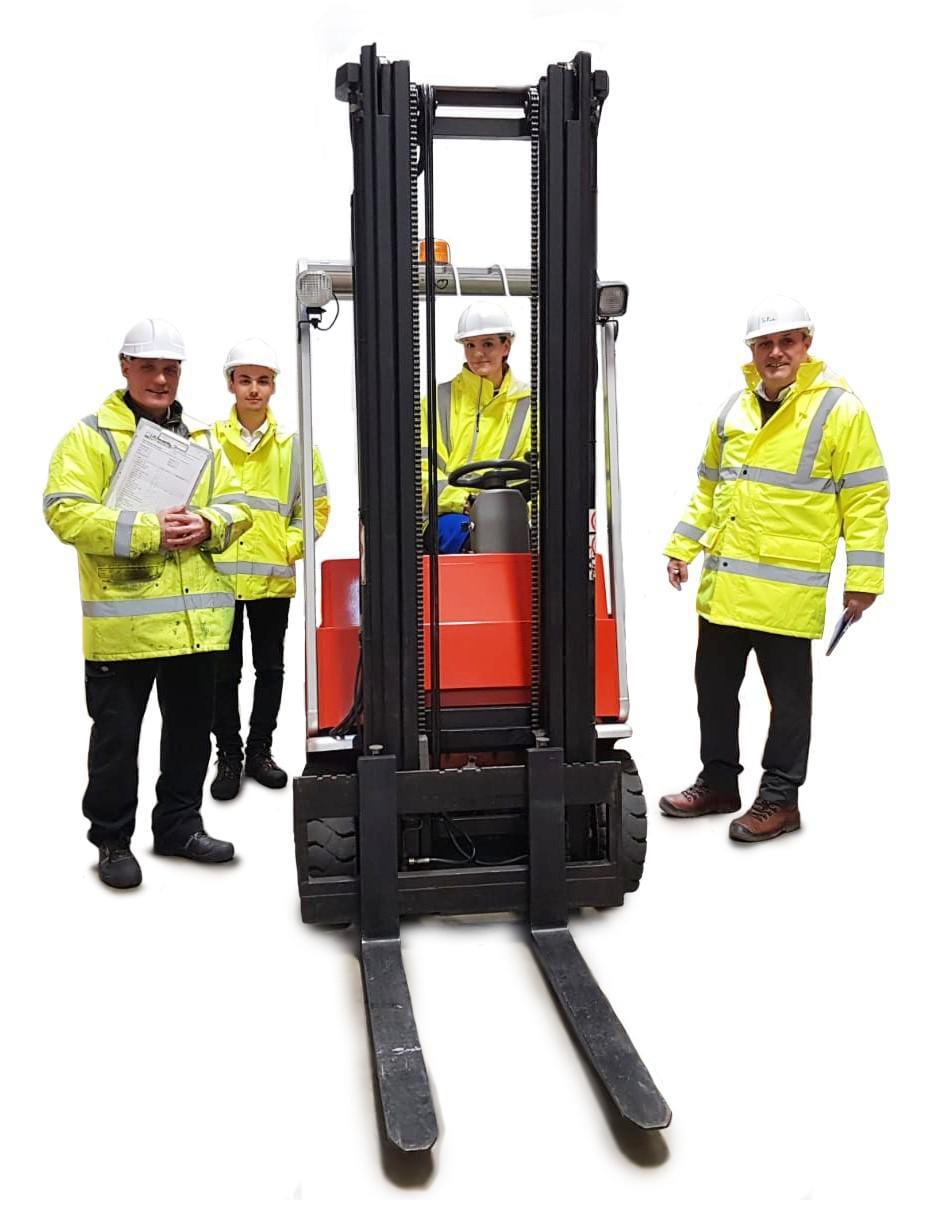All forms of machinery have some impact on the environment. Even if you run on 100% renewable energy and use purely recycled goods, you will still affect the environment. However, the forklift industry can take an eco-friendly direction by changing some aspects of the vehicles.
Keep reading to learn more about the impact of forklifts on the environment and ways to mitigate the adverse effects.
Fuel Source
How “green” is your forklift truck? The answer depends primarily on your fuel source. Different fuel sources have varying impacts on the environment. The three most common fuels for forklifts hired or purchased are diesel, electricity, and propane.
Diesel
Diesel-run forklifts have internal combustion (IC) engines. They are the traditional form and have the highest negative environmental impact. Since they run on fossil fuels, they emit carbon and other greenhouse gases like sulfur and nitrogen oxides.
Furthermore, IC forklifts have more parts and require frequent refilling of fuel, which drives up maintenance and operating costs. However, they cost less upfront, work better outdoors, handle heavier equipment, and can be fueled on the spot.
If you need a diesel-powered forklift, look for one with high fuel-efficiency ratings and emission reduction technology. Also, consider using soy diesel to reduce the number of hydrocarbons and nitrogen oxides emitted.
Electricity
If you’re looking for environmentally-friendly forklifts, you’ve probably stumbled across electric forklifts. They have fewer components and only need charging to use, which reduces maintenance and operating costs. They also produce no greenhouse gas emissions during operation since their power comes from a battery.
Keep in mind that much of this electricity comes from fossil fuel sources. While 42% of the UK’s power comes from renewable sources, it still involves greenhouse gas emissions. Unless you supply your forklift with in-house renewable energy, you will still negatively impact the environment. Also, battery manufacturing usually involves mining minerals that can harm the environment.
Nevertheless, electric forklifts are a better choice than diesel. You will need to spend more upfront, but they should save money in the long run.
Propane
Propane is a clean energy source that produces few greenhouse gas emissions. While not renewable, propane forklifts cost less upfront and provide a compromise between diesel and electric. This fuel source reportedly reduces sulfur oxide emissions by 76% and hydrocarbon and nitrogen oxide emissions by 94% compared to electric forklifts.
Renewable propane does exist, so using it can reduce the environmental impact of your forklifts.
Energy Use
While fuel source is important, the amount of energy you use is even more crucial. Try to minimise the runtime of your forklifts to reduce your carbon emissions. Annual runtimes of forklifts can range from 500 to 3,500 hours. Propane-powered forklifts use an average of 0.35 kg/kWh of propane sent to the wheels. Electric forklifts require 0.0417 kg/kWh of electricity, while diesel ones need 0.15 UK gal/kWh.
By searching for alternative ways to complete tasks usually handled by forklifts, you can cut the amount of fuel you use and have more environmentally-friendly forklifts. You would also save a significant amount of money spent on electricity, propane, or diesel. For instance, it costs about £0.42/h for electricity and £1.10/h for propane. Diesel costs vary too much for a proper estimate, but one can still expect savings by using less fuel.
When not in use, power off the forklift. Also, run it for brief periods at a time to accomplish your tasks with less fuel.
Manufacturing Process
At Angus Lift Trucks, we believe that one of the most significant contributors to the impact of forklifts on the environment is the manufacturing process. Many of the materials that go into a forklift have a massive carbon footprint.
Steel
The most common material used in forklifts is steel. Steel makes up the body, frame, boom, and cab of forklifts. Castings and forgings of aluminium or steel are occasionally used, and nylon plastic sometimes acts as the guides in the boom. Manufacturing the parts involves acids, gases, heat, detergent, and paint.
Manufacturing steel requires the mining of iron ore. This process releases carbon monoxide, sulfur dioxide, nitrous oxide, and carbon dioxide because it involves trucks and diesel generators. Also, acid and heavy metals often drain from mines and cause water pollution.
Furthermore, it takes 20 gigajoules of energy to produce one imperial ton of steel. It requires an input of a type of coal called coke that emits toxic compounds like naphthalene. Also, coking produces toxic wastewater. Producing one ton of steel emits 1.83 imperial tons of carbon dioxide as well.
When shopping for a forklift, see if you can find one made of reused components from other forklifts or recycled steel. That way, you can reduce some of the environmental damage caused by steel production.
Batteries
While batteries lead to more eco-friendly electric forklifts, producing the battery taxes the environment. Lithium-ion batteries require lithium mining. This process leaks toxic chemicals that kill fish, cows, yaks, and anything else that drinks the contaminated water. One such chemical is hydrochloric acid.
Extracting lithium ore requires about 500,000 gallons per metric ton of lithium. Miners drill holes in salt flats and pump brine to the surface. Once the water evaporates, the miner can collect lithium, manganese, borax, and potassium salts that they filter and place in an evaporation pool. After 12-18 months, the lithium carbonate gets extracted. Lithium mining leads to air and soil pollution as well, which hinders crop production and quality of life.
In Australia, about 2% of lithium-ion waste gets recycled. The rest goes to landfills, where they leak ionic fluids and metals that damage the environment. Lithium cathodes cannot go in new batteries, and they are challenging to recycle. Generally, battery cells get shredded to separate the different metals through burning. This process wastes much of the lithium.
While new production and recycling techniques are being explored, there isn’t a great alternative to lithium-ion batteries for now. Relying on propane forklifts instead can provide a compromise between these issues, but it does have a higher fuel cost and comes from a nonrenewable source.
Looking to Buy or Hire
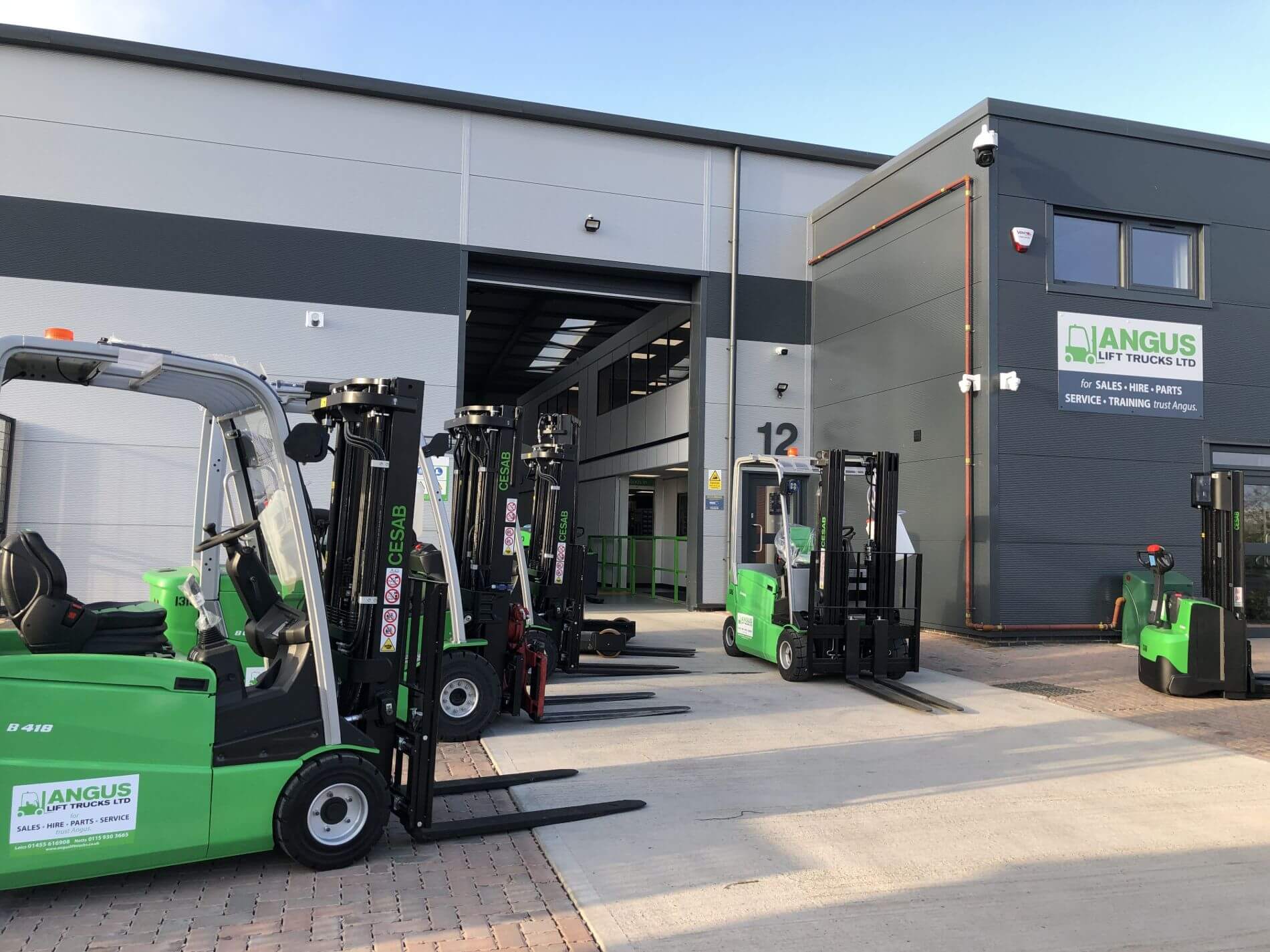
a forklift?
With 35+ years of experience, we offer our most competitive rates, flexible finance, 4h service promise & more!
Eco-Friendly Forklift Manufacturing
Toyota has begun manufacturing environmentally-friendly forklifts. The company makes the vehicles at Toyota Material Handling (TMH), which sends nothing to landfills. It also sources materials responsibly from environmentally-friendly suppliers. 85% of the supplies come from ISO 14001 certified companies, meaning they have a proven environmental management system.
TMH cleans the water they send back to water treatment facilities to make it more useful when recycled. Also, they use powder coat painting processes. Toyota wants other manufacturers to institute recycling programs for parts and oil, craft electric and propane forklifts, use less electricity, and minimise pollution.
Waste Reduction
One way to reduce the amount of waste from forklifts is by investing in high-quality vehicles. Electric forklifts can have twice the lifespan of diesel forklifts (20,000 vs 10,000 hours). While high-quality products tend to cost more, they will last longer and have lower fuel costs.
A well-constructed forklift offers reliability so that you won’t have as many issues over its lifetime. You won’t need to replace parts as frequently, which reduces the waste produced. Also, you do not need to buy a new forklift nearly as often.
If you cannot find sustainably produced machinery, look to buy the highest quality options available to reduce the environmental impact of your forklifts.
Maintenance
Whether you already have a forklift or just got one, you will need to perform regular maintenance. Scheduled services prevent leaks of dangerous chemicals and emissions to the environment, which reduces its carbon footprint. Also, maintenance can extend the lifespan of a forklift so that you do not need to buy a new one as often.
Ensure you regularly perform battery checks and oil changes to maintain and improve efficiency. Higher fuel efficiency will minimise the amount of fuel you use, thus lowering the environmental impact.
Also, check that you use the correct forklift for your application. An indoor industrial setting requires clean-burning fuels like electricity or propane to protect the health of your workers and the environment. A diesel truck should only be used outdoors or in a well-ventilated warehouse. Even then, you should try to avoid a diesel forklift when possible.
Of course, should you require any advice on forklifts maintenance, repairs and service in the Midlands, please do contact the team at Angus…we regularly service forklifts in Derbyshire, East Midlands, West Midlands, Leicestershire, Northamptonshire, Birmingham, Warwickshire, Nottinghamshire.
Other Tips
Here are some other steps that you can take to minimise the impact of forklifts on the environment:
- Switch to motion sensor lights to reduce the amount of time that lights are on
- Use LED lighting for its energy efficiency, longevity, durability, and low carbon footprint
- Keep the warehouse warmer in the summer and cooler in the winter
- Insulate the warehouse to regulate the temperature
- Install solar panels in your warehouse
- Recycle oil, packaging, and forklift components
You may also like
Final Thoughts
If you own a forklift or need to buy one, make sure you research the effects of the type of forklift you choose. How “green” is your forklift truck? The environmental impact depends on the power requirements, fuel source, materials, and production process. Select the forklift that can meet your needs effectively while also reducing the carbon footprint of your operation.
Our team at Angus Lift Trucks has over 35 years of experience working in the forklift industry. We can answer all of your questions about the different types of forklifts and how they impact you and the world around you. If you require to buy a forklift in the UK, we can deliver in most areas, including Leicestershire, Nottinghamshire, Northamptonshire, Birmingham, Warwickshire, Derbyshire, East Midlands & West Midlands.
This post is also available in:
Français
Deutsch
Italiano
Português
Español
Български
Hrvatski
Eesti
Latviešu
Lietuvių
Polski
Português
Русский
Slovenčina
Slovenščina
Türkçe
Українська
Albanian
Čeština
Dansk
Nederlands
Ελληνικά
Magyar
Română
